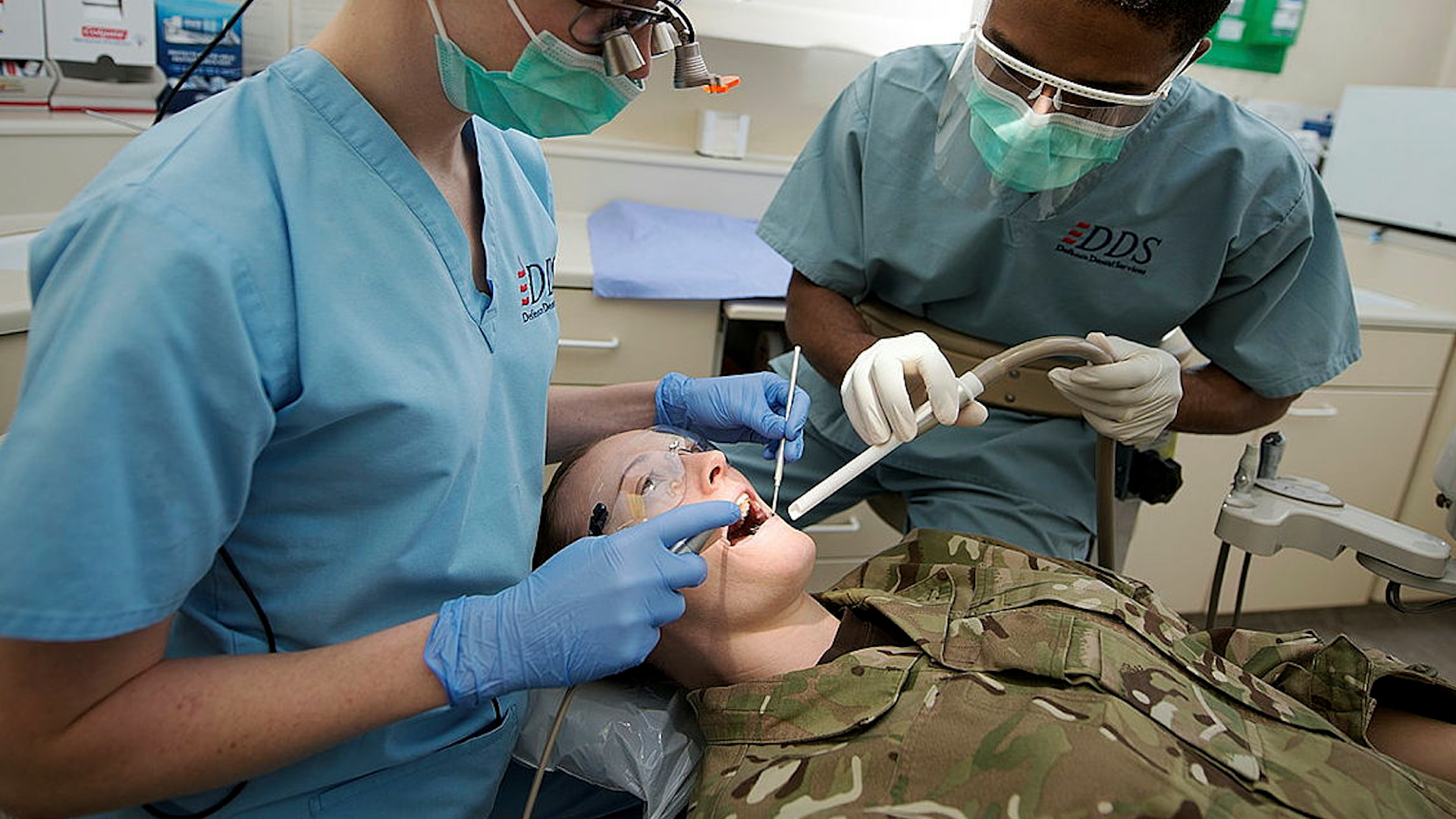
Troops missing dental checks contribute to 10,000+ not fit to fight a war, ex-minister says

Former Armed Forces minister James Heappey believes that a "good chunk" of the more than 10,000 Armed Forces personnel who are currently deemed unfit to be deployed on medical grounds is down to them not having had a dental check-up.
Mr Heappey, who was a Conservative MP before standing down in July, believes that some personnel's medical status would be changed if Britain was at war and they would be considered deployable.
The British Army veteran told Times Radio: "Firstly, I'll bet you that a big chunk of the non-deployable, medically downgraded people are downgraded for dental reasons.
"And what that tends to mean is that they've not had a dental check-up in the last six months, and so they are automatically declared dentally unfit, and therefore not fully deployable."
His comments were made after defence minister and former Royal Marine Commando Al Carns – responding to parliamentary questions – revealed that across the Armed Forces, 99,560 are medically fully deployable, with 14,350 regarded as of limited deployability and 13,522 medically not deployable.
Latest figures show almost more than 13% of the RAF is medically non-deployable, which is more than the Navy (10.39%) and Army (9.64%).
However, these all show a decrease on figures from 2023.
Why are more than 10,000 'not medically deployable'?
Due to the nature of being a member of the Armed Forces, vigorous training or taking part in combat operations abroad means some personnel can and often do sustain injuries – unsurprisingly, musculoskeletal injuries are a common injury for those in uniform.
Previously unknown allergies and even sexually transmitted diseases can mean personnel can be considered medically unfit for duty and be seen as too much of a risk to be deployed on operations abroad and will therefore mean them being medically graded as 'non-deployable' for a period of time.
Any decision to medically downgrade personnel isn't taken lightly and will usually be made by a senior military medical officer.
Downgrading is seen as an opportunity for personnel to receive medical care such as physiotherapy before being recommitted back to the fight.
Military doctors are typically responsible for the medical grading for members of the Armed Forces and personnel with new or worsening medical conditions or fitness issues can be subject to being 'medically downgraded' from being considered 'medically fully deployable' – which means they are fully fit for duty with no employment limitations – to either 'medically limited deployable' or 'medically non-deployable', until they have received treatment or their medical condition has improved.
Personnel who are deemed 'medically non-deployable' can usually still take part in UK-based exercises and can work for at least 32.5 hours per week.
Many of the thousands of personnel who are medically downgraded each year will go on to fully recover after receiving treatment and go on to be certified fully fit for duty again.
Those who do not meet the minimum medical standards to fight in frontline combat roles will sometimes be assigned to other areas of the military in a supporting role or they may be, or offered to be, medically discharged from the Armed Forces.









